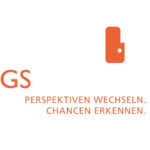Occupational Health Management (OHM).
Professional occupational health management
is essential for every company today. According to a health policy expert commission, this means "systematically and sustainably endeavouring to design structures and processes to promote health and to empower employees to promote health".

Good health management saves costs in the long term. Appropriate measures not only have a positive effect on the health and satisfaction of employees, but also lead to considerable cost savings in the long term. GS Consult advises companies on how they can optimally utilise their potential in occupational health management. We also support you in carrying out a risk assessment of mental stress, which has been mandatory for all companies since 2013.
Training and advice
We accompany you on occupational health issues
In addition to carrying out risk assessments of mental stress, we offer training on a wide range of health topics.
What does "risk assessment of mental stress" actually mean?
The term refers to nothing more than a risk assessment that focusses not on ergonomic, but on psychological stress factors in the workplace and takes them into account comprehensively. The risk assessment of mental stress serves as a comprehensive inventory of the factors to which employees are exposed in their working environment.
Both the negative ones, which trigger stress in employees and thus favour the development of mental illness, and the positive ones, which serve as valuable resources in the development of protective measures for mental health.
How exactly does this differ from the "classic" risk assessment?
Air, noise, light - the classic risk assessment has been established practice in the vast majority of companies for years. Workplace analyses are carried out using measuring devices and questionnaires and appropriate measures are introduced to minimise risks if limit values are exceeded or undercut.
However, the reaction of different employees to the same psychological stress factors varies greatly from individual to individual, and there are no generally applicable threshold values. It is therefore not sufficient to assess reference workplaces.
Instead, a selection of employees and workplaces that is as representative as possible is analysed using methods specially developed for this purpose - depending on the complexity and size of the company - in order to systematically identify and respond to stresses and strains among employees.
Which companies does this affect and which people are involved?
All companies are affected!
Due to the sharp rise in employee absences due to mental health diagnoses, the legislator has explicitly provided for risk assessments of mental stress for every company in Germany since 2013 - for the employer as a "mandatory measure" as part of occupational health protection, and for employee representatives as a co-determination right and obligation.
Why is it so difficult to measure psychological stress factors correctly?
As everyone is psychologically "wired" differently, people react very differently to the same stress factors.
These subjective perceptions are not clearly recognisable from the outside and are therefore difficult to measure objectively. However, with the right expertise and methodological knowledge, this challenge can be overcome. Especially if important rules are followed when measuring and interpreting psychological factors.
FAQ
Risk assessment of mental stress
You have been commissioned to carry out a risk assessment of mental stress in your company and still have questions.
Talk to us.
Topic Health Management
Trainings and events

BEM I - Basics of BEM

BEM II - Preparing and conducting meetings effectively






